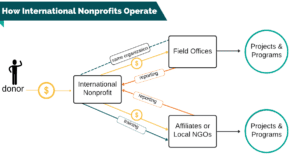Jesus loves the poor – but what does that look like? Here are 6 Bible verses about helping the poor – and what they mean for us.
1. The Tithing Widow
The Lord cares about someone’s heart – not their financial status
Mark 12:41-44
41 And he (Jesus) sat down opposite the treasury and watched the people putting money into the offering box. Many rich people put in large sums. 42 And a poor widow came and put in two small copper coins, which make a penny. 43 And he called his disciples to him and said to them, “Truly, I say to you, this poor widow has put in more than all those who are contributing to the offering box. 44 For they all contributed out of their abundance, but she out of her poverty has put in everything she had, all she had to live on.”
Of the rich and poor present in the story, Jesus exalts the poor widow who makes a greater sacrifice rather than the greater contribution. God’s heart is not for the quantity of what we have, but for the heart behind which we give from. Those who live in poverty are not cut off from Jesus, rather they are exalted and pointed to as a role model when they serve him.
The passage also provides another reminder: all people have gifts and talents to offer the world – regardless of their financial status.
2. The Parable of the Great Banquet
All people, including the poor, deserve a place in our lives – and in our homes
Luke 14:12-14
12 He said also to the man who had invited him, “When you give a dinner or a banquet, do not invite your friends or your brothers or your relatives or rich neighbors, lest they also invite you in return and you be repaid. 13 But when you give a feast, invite the poor, the crippled, the lame, the blind, 14 and you will be blessed, because they cannot repay you. For you will be repaid at the resurrection of the just.”
Jesus doesn’t just call us to serve those in poverty, but to engage with and live in community with them. Providing for someone’s physical needs should be coupled with genuine relationships and invitations into our homes and lives. Jesus didn’t just heal the crippled, the lame, and the blind – he also sat, ate, and spoke with them.
Jesus also calls us to give without hope of repayment here on Earth. But when we build relationships with those in poverty, we can expect to be blessed with friendships, new outlooks on life, a fresh perspective, and a closeness with Christ as we model our lives after his.
Get the [free] Approaching Poverty 7-Day Devotional

This 7-day devotional will walk you through understanding why poverty exists, why we should help, and how we should help.
Each day will include scripture, a written reflection, and a mixture of reflection questions or connecting stories from the ground in Guinea-Bissau.
"*" indicates required fields
3. Lazarus in Heaven
Those who overlook the poor are scorned
Luke 16:19-25
19 “There was a rich man who was clothed in purple and fine linen and who feasted sumptuously every day. 20 And at his gate was laid a poor man named Lazarus, covered with sores, 21 who desired to be fed with what fell from the rich man's table. Moreover, even the dogs came and licked his sores. 22 The poor man died and was carried by the angels to Abraham's side. The rich man also died and was buried, 23 and in Hades, being in torment, he lifted up his eyes and saw Abraham far off and Lazarus at his side. 24 And he called out, ‘Father Abraham, have mercy on me, and send Lazarus to dip the end of his finger in water and cool my tongue, for I am in anguish in this flame.’ 25 But Abraham said, ‘Child, remember that you in your lifetime received your good things, and Lazarus in like manner bad things; but now he is comforted here, and you are in anguish.
It can be easy to forget about people’s needs when we are surrounded by luxury and have all our physical needs met. Even the needs of the people who may be right outside our doors can easily be overlooked when we are distracted by maintaining our own comfort. The rich man lived in luxury everyday and just outside his gate was someone in need who he had the capacity to help. Rather than focusing on using his prosperity to help others, the rich man pursued earthly comfort at the expense of spending eternity with Christ.
4. Jesus was born into poverty
Jesus lived among his creation as a humble man – not a wealthy royal
Luke 2:7 | Matthew 13:55 | Luke 2:24 | Leviticus 12:8
Jesus spent time with the wealthy, but he came to come to earth as a humble man. He was born in a manger (Luke 2:7) and his adoptive father was a common carpenter (Matthew 13:55). At Jesus’ purification ceremony, his parents presented two doves instead of a lamb for an offering (Luke 2:24). Though lambs were the ideal offering, doves were allowed as a substitute for those who could not afford one (Leviticus 12:8). The son of God himself came from a family without the financial means to complete the level of requirement for a sacrifice. The Lord not only loves the poor, but can identify and relate to those who are scraping by.
5. Man with leprosy is healed
Jesus didn’t ostracize the poor – but interacted with and healed them
Mark 1:41-42
41 Moved with pity, he stretched out his hand and touched him and said to him, “I will; be clean.” 42 And immediately the leprosy left him, and he was made clean.
Those with leprosy were excommunicated from town and were left to beg for food and money. Jesus willingly crossed the divide and interacted with, touched, and healed lepers. Rather than looking at the poor and seeing the person as nothing more than their needs, Jesus looks and sees their potential. When we work to help others, we can do the same.
Never-ending charity can make poor people look like nothing more than charity cases. And eventually, poor people start to see themselves as being defined by their needs, instead of their potential as fellow human beings.
When we are asked to help a person in need, the first thing we should consider is this: Will what I do build this person up to their full potential, or am I just reinforcing the perception that I’m the giver and the other person is the receiver?
We’ve found a few ways that help break this unhealthy dynamic: build encouraging relationships with poor people, find ways to give them new opportunities in life, and train them in a new job skill that allows them to fulfill their own potential.
6. Jesus condemning the love of money
Jesus heart isn’t just for the poor – but is actively against selfish wealth
Luke 16:13
13 No servant can serve two masters, for either he will hate the one and love the other, or he will be devoted to the one and despise the other. You cannot serve God and money.”
Let us be clear, God’s heart is not against those with wealth. As long as money is not an idol or source of reliance and dependence. In fact, Jesus relied on many affluent people to help propel his mission forward. The houses he stayed in and people that fed him were all people with money that they used to bless others. Jesus even spends much of his time on Earth eating with tax collectors and wealthy pharisees. When he condemns these people it is not because of the existence of their wealth, but their love of it. Those who do have money are called to use it as a way to serve God, rather then serving themselves. Jesus sees the hearts of those uncorrupted by wealth and rejoices.
When we invest our money in helping people and sharing the Gospel, the impact of our investment can be life-changing both here on earth and for eternity.
We believe that Jesus changes everything: how we live, work, and love others
We know that it is not our work that saves us. But we also know that our works allow us to display and share our faith with others. When we love the poor, we reflect Jesus’ love for others.
One way we’ve been able to do that is by meeting the practical needs of people living in poverty in West Africa. At WAVS vocational schools, students are equipped with life-changing job skills that help them to work for a brighter future. At the same time, WAVS teachers build authentic relationships with their students. These relationships allow them to share a simple truth: Jesus changes everything – how we live, work, and love others. Ultimately, this truth leads to hope for eternity.






